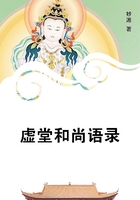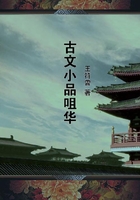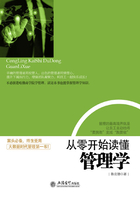The sole gainers under these conditions were the princes.We have seen at the beginning of our exposition that low development of industry, commerce and agriculture made the centralisation of the Germans into a nation impossible, that it allowed only local and provincial centralisation, and that the princes, representing centralisation within disruption, were the only class to profit from every change in the existing social and political conditions.The state of development of Germany in those days was so low and at the same time so different in various provinces, that along with lay principalities there could still exist ecclesiastical sovereignties, city republics, and sovereign counts and barons.Simultaneously, however, this development was continually, though slowly and feebly, pressing towards provincial centralisation, towards subjugating all imperial estates under the princes.It is due to this that only the princes could gain by the ending of the Peasant War.This happened in reality.They gained not only relatively, through the weakening of their opponents, the clergy, the nobility and the cities, but also absolutely through the prizes of war which they collected.The church estates were secularised in their favour; part of the nobility, fully or partly ruined, was obliged gradually to place itself in their vassalage; the indemnities of the cities and peasantry swelled their treasuries, which, with the abolition of so many city privileges, had now obtained a much more extended field for financial operations.
The decentralisation of Germany, the widening and strengthening of which was the chief result of the war, was at the same time the cause of its failure.
We have seen that Germany was split not only into numberless independent provinces almost totally foreign to each other, but that in every one of these provinces the nation was divided into various strata of estates and parts of estates.Besides princes and priests we find nobility and peasants in the countryside; patricians, middle-class and plebeians in the cities.
At best, these classes were indifferent to each other's interests if not in actual conflict.Above all these complicated interests there still were the interests of the empire and the pope.We have seen that, with great difficulty, imperfectly, and differing in various localities, these various interests finally formed three great groups.We have seen that in spite of this grouping, achieved with so much labour, every estate opposed the line indicated by circumstances for the national development, every estate conducting the movement of its own accord, coming into conflict not only with the conservatives but also with the rest o-I the opposition estates.
Failure was, therefore, inevitable.This was the fate of the nobility in Sickingen's uprising, the fate of the peasants in the Peasant War, of the middle-class in their tame Reformation.This was the fate even of the peasants and plebeians who in most localities of Germany could not unite for common action and stood in each other's way.We have also seen the causes of this split in the class struggle and the resultant defeat of the middle-class movement.
How local and provincial decentralisation and the resultant local and provincial narrow-mindedness ruined the whole movement, how neither middle-class nor peasantry nor plebeians could unite for concerted national action; how the peasants of every province acted only for themselves, as a rule refusing aid to the insurgent peasants of the neighboring region, and therefore being annihilated in individual battles one after another by armies which in most cases counted hardly one-tenth of the total number of the insurgent masses-all this must be quite clear to the reader from this presentation.The armistices and the agreements concluded by individual groups with their enemies also constituted acts of betrayal of the common cause, and the grouping of the various troops not according to the greater or smaller community of their own actions, the only possible grouping, but according to the community of the special adversary to whom they succumbed, is striking proof of the degree of the mutual alienation of the peasants in various provinces.
The analogy with the movement of 1848-50 is here also apparent.
In 1848 as in the Peasant War, the interests of the opposition classes clashed with each other and each acted of its own accord.The bourgeoisie, developed sufficiently not to tolerate any longer the feudal and bureaucratic absolutism, was not powerful enough to subordinate the claims of other classes to its own interests.The proletariat, too weak to be able to count on skipping the bourgeois period and immediately conquering power for itself, had, still under absolutism, tasted too well the sweetness of bourgeois government, and was generally far too developed to identify for one moment its own emancipation with the emancipation of the bourgeoisie.The mass of the nation, small bourgeois artisans and peasants, were left in the lurch by their nearest and natural allies, the bourgeoisie, because they were too revolutionary, and partly by the proletariat because they were not sufficiently advanced.Divided in itself, this mass of the nation achieved nothing, while opposing their fellow opponents on the right and the left.
As to provincial narrow-mindedness, it could hardly have been greater in 1525 among the peasants than it was among the classes participating in the movement of 1848.The hundred local revolutions as well as the hundred local reactions following them and completed without hindrance, the retention of the split into numerous small states -- all this speaks loud enough indeed.He who, after the two German revolutions, of 1525 and 1548, and their results, still dreams of a federated republic, belongs in a house for the insane.















